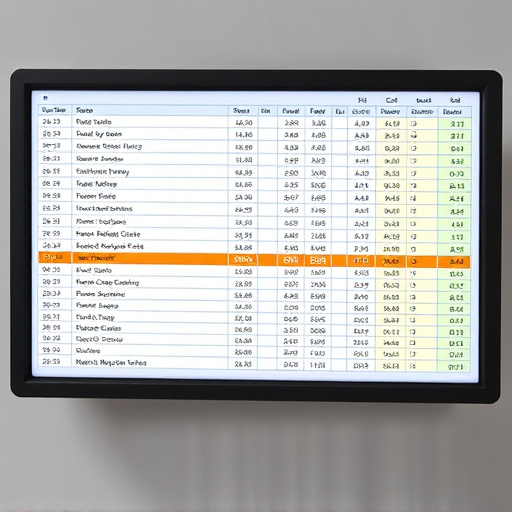Disposable filter intake systems, vital for household appliances and vehicles, maintain performance by trapping dust and contaminants. Regular replacement is key for efficiency and equipment longevity. The demand for sustainable alternatives has led to synthetic materials offering enhanced durability and filtration over traditional paper filters, reducing waste. While paper is eco-friendly due to its biodegradability, frequent replacements contribute to long-term waste generation. Innovations in synthetic materials aim to minimize environmental impact by extending product lifespans.
In today’s quest for sustainable solutions, the battle between traditional paper filters and synthetic alternatives in disposable filter intake systems is more relevant than ever. This comprehensive guide delves into the heart of this debate, offering an in-depth comparison. We explore the mechanics of disposable filter intake systems, uncover the advantages and unique properties of synthetic materials, and critically analyze their environmental impact for a longer-lasting solution. Discover why choosing the right replacement can make all the difference.
- Understanding Disposable Filter Intake Systems: An Overview
- The Rise of Synthetic Alternatives: Benefits and Features
- Comparing Sustainability: Environmental Impact and Longevity
Understanding Disposable Filter Intake Systems: An Overview

Disposable filter intake systems, often found in various household appliances and vehicles, serve as crucial components for maintaining optimal performance. These systems play a vital role in ensuring clean and efficient air flow by filtering out dust, dirt, and other contaminants from the surrounding environment. A typical disposable filter intake system consists of a housing that contains a replaceable filter element designed to capture pollutants before they enter the appliance or engine.
Regular replacement of these filters is essential for maintaining their effectiveness. Over time, the filters become clogged, reducing airflow and potentially impacting the overall efficiency of the device. Most manufacturers recommend periodic replacement, usually every few months or after a certain number of operating hours, depending on usage patterns and environmental conditions. Understanding the importance of timely disposable filter intake system replacement ensures that devices function at their best, providing clean air and extending the lifespan of the equipment.
The Rise of Synthetic Alternatives: Benefits and Features

In recent years, the demand for sustainable alternatives to traditional paper products has skyrocketed, with consumers and businesses alike seeking eco-friendly options. This shift is largely driven by the growing awareness of environmental issues and the need for disposable filter intake systems replacement. Synthetic materials have emerged as a promising solution, offering numerous benefits over paper.
Synthetic alternatives, particularly those designed for filters, provide enhanced durability and efficiency. They are less prone to tearing or disintegrating, ensuring prolonged use and reduced waste. Moreover, these materials often possess advanced filtration capabilities, capturing finer particles and improving overall performance. With their superior strength and functionality, synthetic disposable filter intake systems offer a compelling option for those seeking both convenience and environmental responsibility.
Comparing Sustainability: Environmental Impact and Longevity

When comparing paper and synthetic materials, particularly in the context of disposable filter intake systems like those used in coffee makers or vacuum cleaners, sustainability becomes a key differentiator. Paper, being a natural resource, generally has a lower environmental impact during production. It is biodegradable and can be recycled, making it a more eco-friendly option. However, the frequency of replacement for these paper filters contributes to waste generation over time, especially in households or businesses that rely heavily on disposable filter intake systems.
On the other hand, synthetic materials offer longer durability, reducing the need for frequent replacements. While they may not be as biodegradable as paper, advancements in technology have led to the development of more environmentally friendly synthetic alternatives. These innovations aim to minimize the overall environmental impact by extending the lifespan of products and reducing waste from disposable filter intake systems.
In conclusion, while disposable filter intake systems have long been the go-to solution for many, the rise of synthetic alternatives offers a compelling case for a greener future. By examining the benefits, features, and sustainability factors, it’s clear that synthetic materials provide a viable—and eco-conscious—displacement for traditional paper options. As consumers become more conscious of their environmental impact, choosing durable, reusable synthetic filters could be a game-changer in reducing waste associated with disposable filter intake systems replacement.














